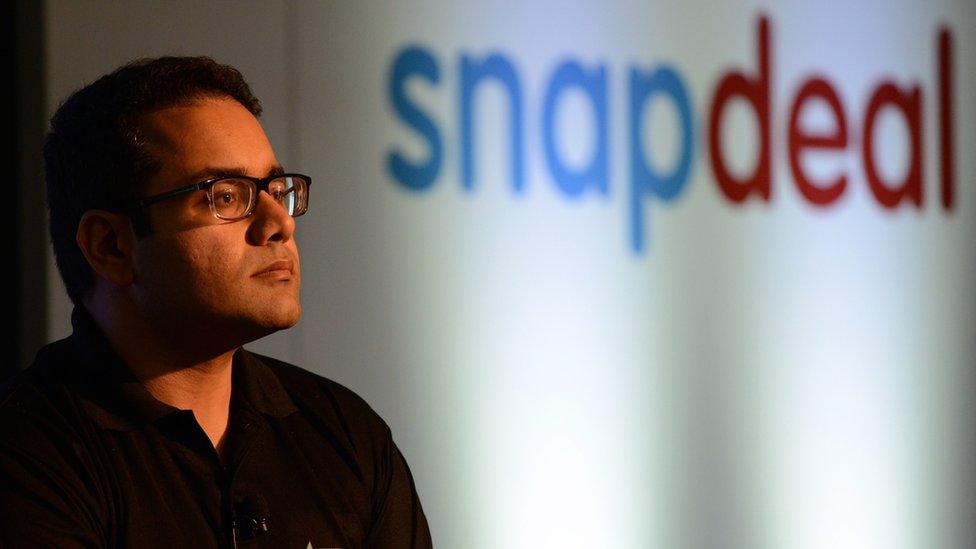Why did Walmart buy India's Flipkart?
- Published
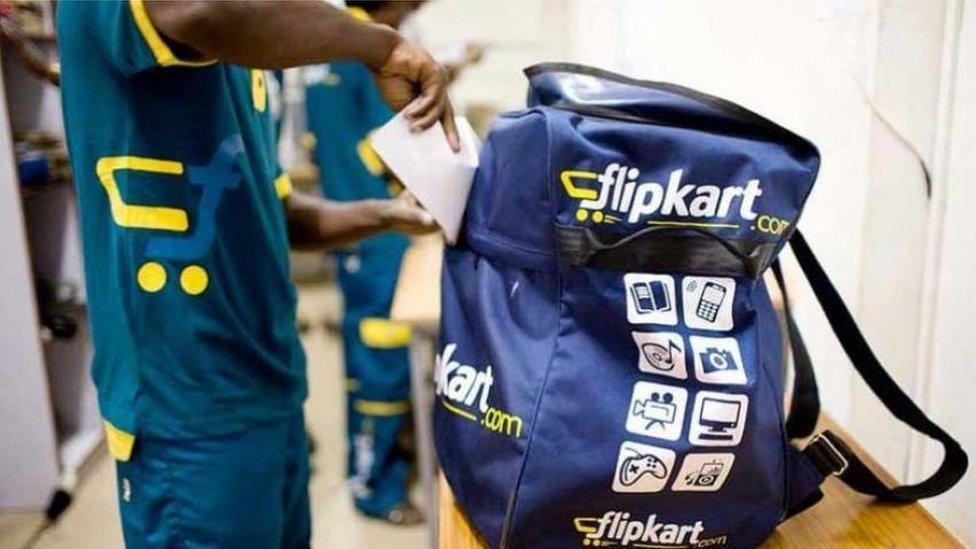
Flipkart is India's biggest e-commerce company
Global retail giant Walmart has paid $16bn (£11.8bn) for a majority stake in Flipkart, India's biggest online retailer, making this the world's largest ever e-commerce acquisition.
Walmart, best known for its grocery stores, discount department stores and hypermarkets, is ubiquitous in the US. But its sales have barely grown offline and its online sales account for just a little more than 3% of its business in the US.
Flipkart, founded in 2007 by Sachin Bansal and Binny Bansal (no relation), is India's biggest e-commerce company and has had high-profile investors including Microsoft, Tencent and Softbank.
But after Walmart announced the deal on Wednesday, its shares tumbled 4%, a likely reflection of the high price the company paid for Flipkart.
Why did Walmart spend so much on Flipkart?
"India is one of the most attractive retail markets in the world, given its size and growth rate," Walmart's president and CEO Doug McMillon said in a statement.
Walmart is betting on the fact that India's e-commerce market, pegged at a modest $38bn in 2017, is expected to grow up to $200bn by 2027.
E-commerce currently makes up less than 4% of the retail market in India, but that's predicted to change as the number of Indians using smartphones (and the internet) increases rapidly in the next decade.

Walmart is ubiquitous in the US
Although Walmart has 21 "cash-and-carry" wholesale stores in India that sell to businesses, it has no other retail presence in the country. So this acquisition allows the company to jump straight into a small but growing e-commerce market with about 100 million customers.
This deal is also a new front in Walmart's battle with Amazon, the global leader in online retail, which accounts for 44% of the US e-commerce market.
How big is Flipkart?
The company sold products worth a total of $7.5bn in the financial year that ended in March 2018 - the sales had grown by 50% since the previous year. Its net sales, after discounts, returns and cancellation, were worth $4.6bn.
Amazon, too, made a bid for Flipkart but the merger could have faced severe scrutiny from India's antitrust regulator as their combined sales would have added up to almost 90% of India's e-commerce market.
Why did Walmart's stock crash after the deal was announced?
Analysts believed that Walmart overpaid for its stake in Flipkart. This widely-held view was echoed on Wall Street, where Walmart shares dropped to their lowest intraday price since October 2017, wiping $10bn off its market capitalisation.
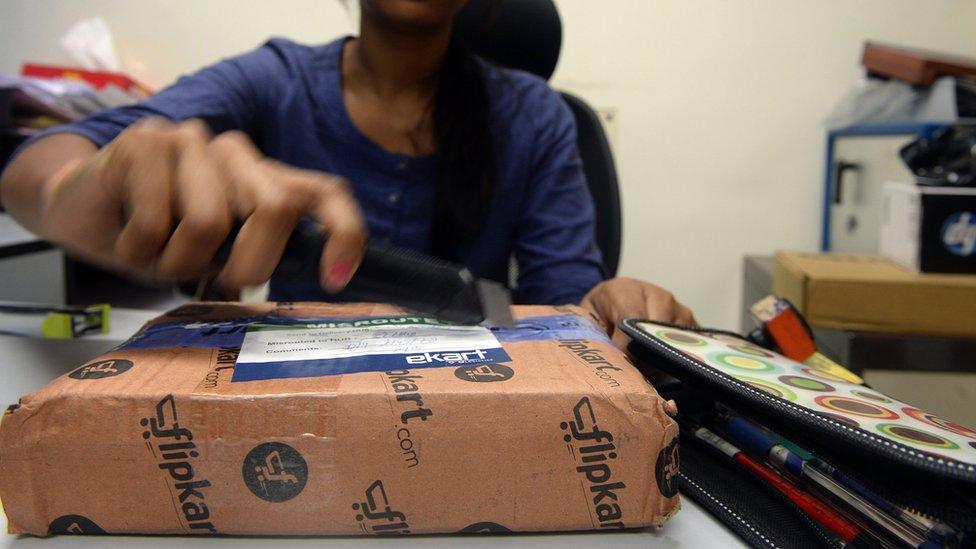
Flipkart claims more than 100 million registered users in India
This is because Flipkart is not expected to be profitable for some years and the Indian e-commerce market is small by global standards - 100 million customers in a country with about 1.3 billion people.
But the deal still gives Walmart the fastest entry possible into one of the most promising, albeit difficult, e-commerce markets.
Walmart said in a media release that Flipkart will leverage Walmart's diverse retail expertise, merchandise supply-chain knowledge and financial strength, while Flipkart's "talent, technology, customer insights and agile and innovative culture" will benefit Walmart.
Is this a good deal for Flipkart?
Yes, according to most experts. After Walmart bought the controlling stake, Flipkart is valued at more than $20bn.
The deal also saves Flipkart, which was running out of cash in its battle with Amazon. Both competitors have been "burning cash" in massive sales and discounts pegged to Indian festivals in a bid to acquire more customers.
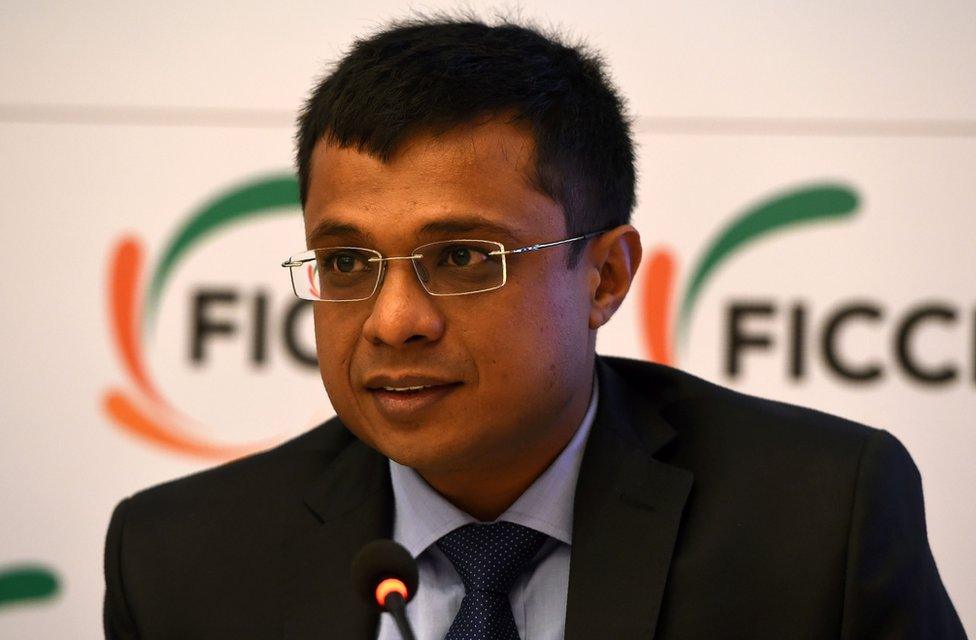
Sachin Bansal is one of the founders of Flipkart
Amazon runs a profitable business worldwide, thanks to its cloud computing service, and it has the cash to take on newer markets.
Flipkart, however, needs the financial strength Walmart offers. It has also managed an excellent valuation, by all accounts, giving both its co-founder Sachin Bansal, and several of its key investors, profitable exits.
This is the highest price any foreign company has paid for a stake in an Indian company. New York-based angel investor Gautam Gandhi said Flipkart's founders had been elevated from "role models to demi-gods for aspiring entrepreneurs".
Was this a good deal for Flipkart's other investors?
Given Flipkart's high valuation of $20bn, investors who exited got a good deal.
Venture capital firms Accel and Tiger Global invested more than eight years ago when Flipkart was valued at just $50m - and they have now exited with more than 400 times what they invested.
The SoftBank Vision Fund led by Masayoshi Son was a big beneficiary of the deal - it had invested $2.5bn in August 2017 for a 20% stake and it exited with $4bn.
Flipkart co-founder Binny Bansal retains his stake. So do Microsoft, eBay and China's Tencent, who invested a total of $1.4bn in April 2017.
What does Walmart bring to the table?
Apart from capital, Walmart brings expertise in online groceries and a strong food supply chain.
"We aim to become the best food retailer in the world, and that needs investment in supply chains to build those capabilities," Rajneesh Kumar, corporate affairs chief at Walmart India told the BBC.

Flipkart co-founder and chief executive Binny Bansal (right) with Walmart chief Doug McMillon
Walmart, he added, will also focus on sourcing from India for its global operations. "We are already sourcing handicrafts, apparel, food products like rice, from India…we will ramp that up."
What does the rest of India's e-commerce market look like?
The Indian e-commerce market, beyond retail, has more than a dozen major Indian as well as foreign players and brands. Most of the market leaders have foreign funding - from Softbank, Alibaba, Naspers etc.
In the taxi aggregation market, the Indian start-up Ola competes fiercely with Uber although both have a common shareholder, Softbank.
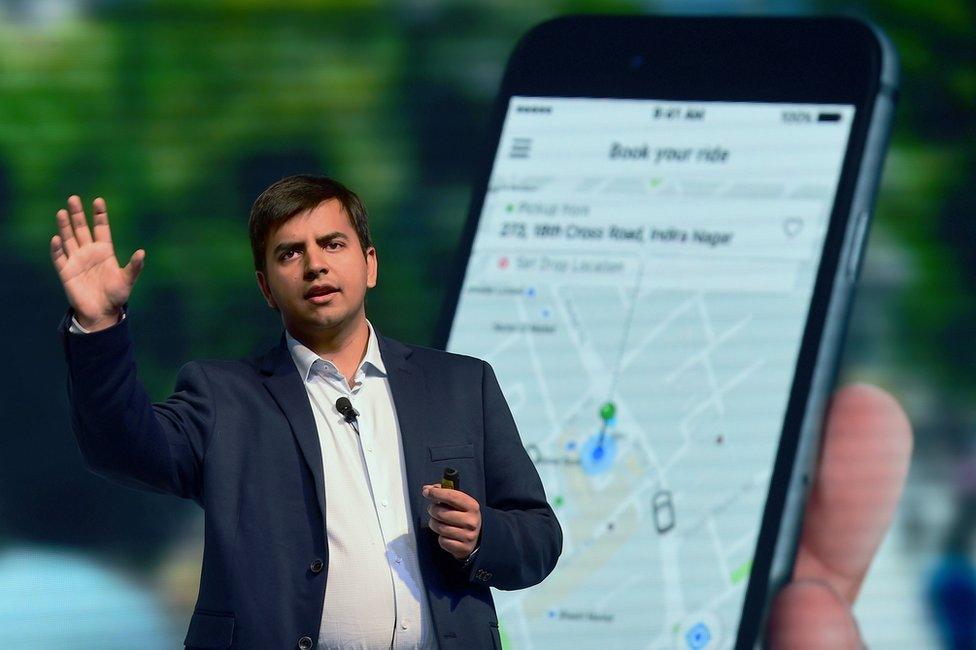
Bhavish Aggarwal is the founder of Ola, a taxi aggregator that competes with Uber
Alibaba and Softbank-funded Paytm, which dominates the busy mobile payments market, now faces competition from Google, Facebook and Paypal.
The online travel market is dominated by two Indian players, MakeMyTrip, which is funded by Naspers Ltd and the Chinese travel operator Ctrip, and the government-owned IRCTC, which sells railway tickets.
- Published9 May 2018
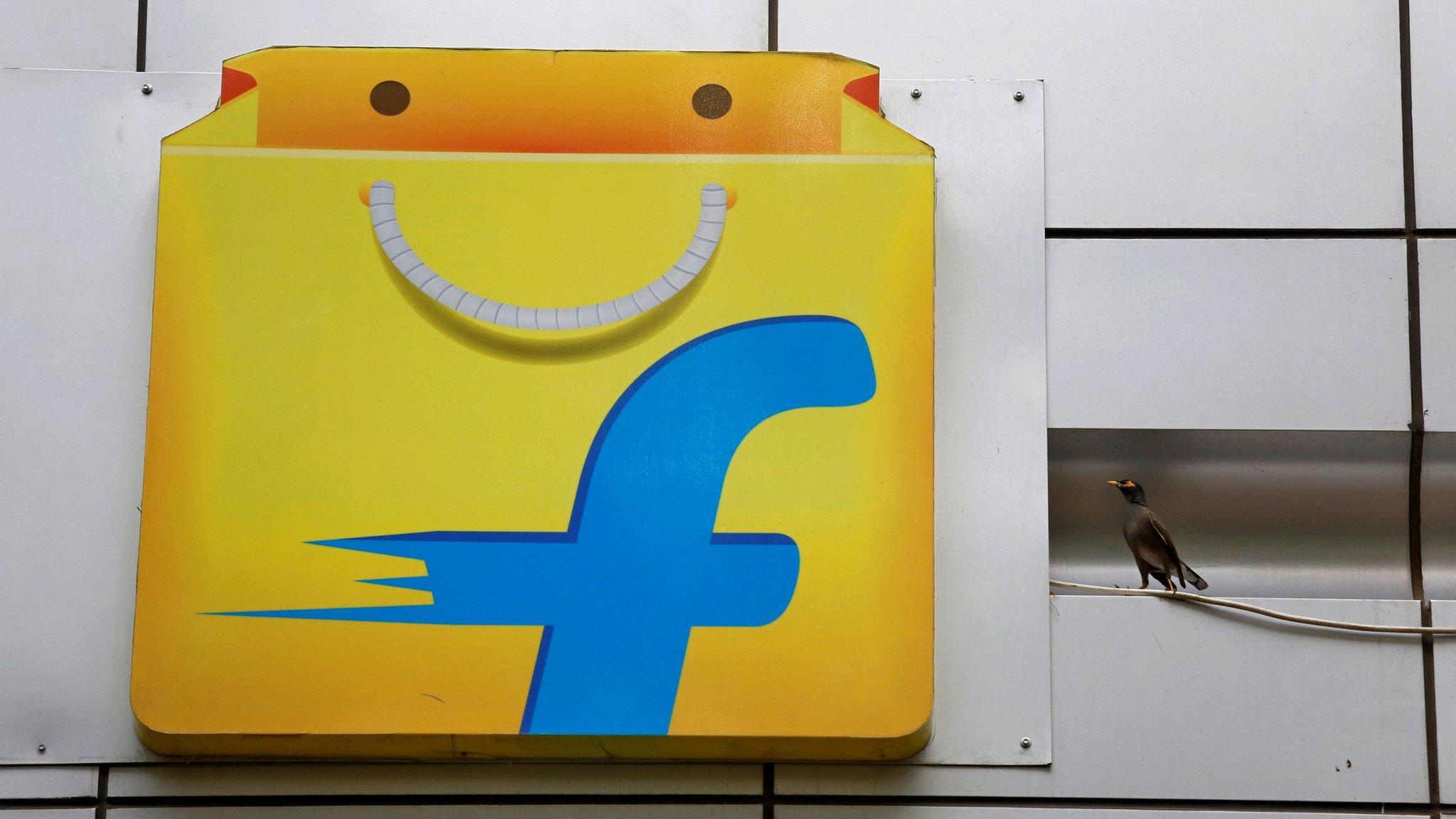
- Published31 July 2017
